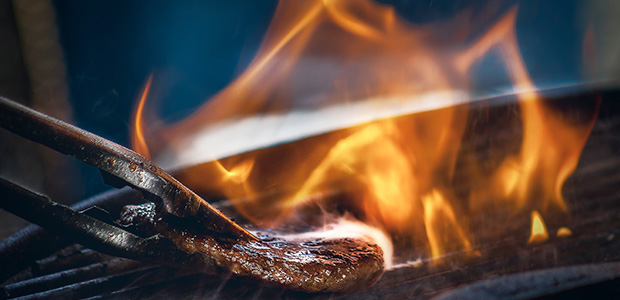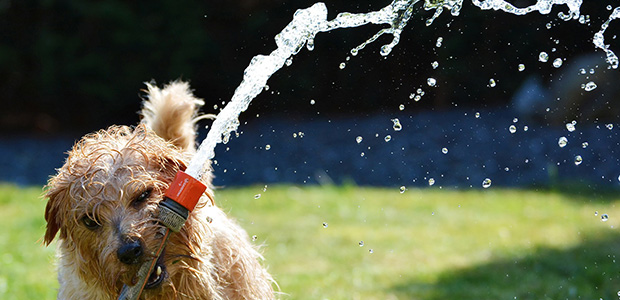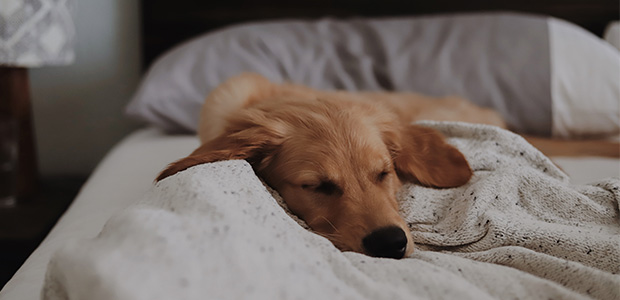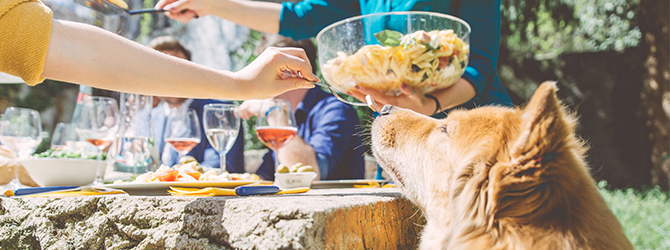BBQ safety: 7 tips for pet owners
First Published: 18/04/2019
Last Updated: 20/01/2025
BBQs are fun for humans and pets alike, but they do pose some threats to our furry friends. To make sure your pets stay safe, take a look at our top tips!
Potential dangers for your pet
BBQs introduce lots of changes to our pets’ environment. These include:
- The heat from the open flame
- Poisonous or potentially harmful substances (charcoal, matches, lighters etc)
- Strangers and loud unfamiliar noises (that we might refer to as music)
- Sharp & hot objects (cooked bones/skewers)
- Fatty foods
Pets respond differently to changes in their environment. Dogs may become incredibly excited or they may get scared and more inclined to run away – just like cats.

Image: Carnivore Style.
Keep your BBQ pet-friendly with our top tips
To make your summer festivities safe for pets, you simply need to follow a few steps…
Keep the flame in a safe place
Perhaps the most obvious threat is the large, searing open flame. If your pet has access to the garden or BBQ area, it’s especially important to make sure the BBQ is secure.
Keep it on a flat area where it’s less likely to fall over and aim not to let your pet get too close.
Bear in mind that BBQs take hours to cool down. It’s best advised to keep your pet away from the BBQ as its cooling overnight. If you’re letting them into the garden, make sure they’re supervised at all times.
Same goes for harmful substances
Many BBQ accessories can be deadly if our pets get access to them. These include:
- Cooked bones
- Skewers
- Matches
- Lighter fluid
- A wide array of foods
- Garden or cleaning products containing chemicals
Read more: 11 ways to keep dogs cool on hot days
It’s important to keep these products out of your pet’s reach at all times. Keep a bin close by, somewhere your pet can’t get to, and dispose of unwanted products in there. As for chemicals and matches, store them up high or in a safe place. Take care not to leave foreign objects on the ground or anywhere your pet could sneak past when you’re not looking.
Keep your pets hydrated
BBQs are thirsty work. The open flame, the smoky and sizzling food, not to mention the heat of the summer’s day! In all the excitement, we often forget to keep ourselves hydrated and the same goes for our pets, who often can’t tell us they’re thirsty and in all their excitement, may not even realise it themselves.
Make sure at all times that your pet has access to clean drinking water. We recommend placing their bowl in a shaded area – far away from the BBQ and the foods/accessories that come with it.

Avoid feeding BBQ meats to your dog
Greasy, under/overcooked meats can upset your dog’s stomach or even cause pancreatitis. Corn on the cob can cause a blockage in their digestive system.
Avoid feeding your dog meat or other products from the BBQ - as tempting as it may be, either to feed scraps or to give in to those puppy-dog eyes. The same goes for alcohol, chocolate and other foods designed for humans.
Use treats and toys
It’s all well and good us saying, ‘Keep your pet away from this, that and the other,’ but this is easier said than done, right?
The best way of distracting your pets is by using objects and treats that they’re familiar with. Why not scatter some treats around the garden to keep their minds and taste buds occupied?
Encourage them to bring their toys outside too: so long as their games don’t interact with the BBQ, this a great way of letting your pet join the fun.
Set up a safe place
Your pet may decide that they’ve had enough of all the socialising and that it’s high time for some peace and quiet. Before your guests come round, set up a quiet zone for your pet to return to if they wish to be alone. All of the new experiences can be fun for them at first, but can quickly become overwhelming.

Supervise your pet
Last but not least and taking all the above into account, remember to keep one eye on your pet as often as you can… just in case curiosity gets the better of them.
Need more advice?
For more advice on keeping your pet safe and healthy, have a chat with your local vet.
Find your nearest vet using our Find a Vet page, or speak to a vet online using Online Vets.


